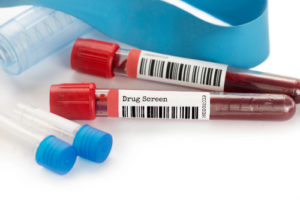
A court-ordered drug test can be mandated for many reasons, from drug-related criminal charges to child custody cases. Going through the process of finding, taking, and following up with a court-ordered drug test may be a bit different from a voluntary one. These tests are often more comprehensive than elective tests and may require you to provide multiple biological samples, as probation officers regularly administer drug tests to ensure compliance with the law. Because of the court’s involvement, it is best to work with a qualified legal professional from the outset.
Criminal Defense Attorney Brian Gabriel has successfully guided many clients through the court-ordered drug test process. Working with a lawyer before you take the test ensures you secure the fairest possible shake in the situation.
Understanding Court-Ordered Drug Testing
Court-ordered drug testing is a crucial component of the criminal justice system, ensuring compliance with probation terms and public safety. It is a common practice in legal proceedings where substance abuse is a concern, such as child custody disputes, probation, and parole. The primary aim of court-ordered drug testing aims to discourage substance abuse, a common factor in criminal behavior, and foster a safer community.
Most Common Cases Associated with Court-Ordered Drug Tests
Court-ordered drug testing can be implemented in any case where substance abuse may be a factor. Some of the most common case types that dictate court-ordered testing include:
- Child custody
- DUI/DWI
- Drug trafficking / possession
- Probation violation
Probation drug testing is a critical process in these cases aimed at monitoring individuals on probation to ensure their sobriety and compliance with probation terms.
A case doesn’t necessarily have to include a drug-related component for the court to order periodic testing. There are many instances where it is mandated simply to ensure you comply with the law.
Types of Court-Ordered Drug Tests
Court-ordered drug tests can be administered using various methods, including urine tests, hair follicle tests, saliva tests, and blood tests. The type of test ordered by the judge will depend on the allegations in the case, including the type of alleged drug use and the alleged frequency of use. Urine tests are the most common type of test, but hair follicle tests can detect drug use for a longer period, typically up to 12 months.
What to Expect from a Court-Ordered Drug Test in Florida
Knowing what to expect from a court-ordered drug test can help ensure you are prepared to undergo the process. All tests are administered by licensed, accredited labs that follow stringent procedures for accuracy purposes, ensuring comprehensive drug and alcohol testing. There is a clear chain of custody for these tests, ensuring the sample is properly monitored at all times. This prevents contamination and tampering from occurring in association with the sample.
It’s important to note that you may not be tested in the same way each time. The biological sample used to test you for substances may include urine, hair, saliva, blood, or a combination of these elements. Because different legal drug tests check for different components, drug-ordered testing might combine random tests with more than one sample needed each time. So, you should always be prepared for the unexpected when submitting to court-ordered drug tests.
Additionally, these tests are rarely scheduled on your time or with much—if any—advance notice. When you are given the mandate to submit to court-ordered drug testing, your criminal defense attorney may tell you these tests are random on purpose. The court wants to know you are abstaining from substances at all times. Therefore, even if court-ordered drug tests are scheduled at inconvenient times, you still have to show up and submit your sample to avoid running afoul of the court.
Consequences of a Positive Result
A court-ordered drug test yielding a positive result can lead to significant consequences, such as extended sentences, probation revocation, or loss of child custody. Courts evaluate the situation comprehensively, taking into account the individual’s history, case context, and terms of probation or agreements. When drug use violates probation conditions, it may result in sanctions or further legal action. In child custody disputes, a positive test can influence custody decisions unfavorably. However, courts may also provide opportunities for rehabilitation through treatment programs, counseling, or other support to address substance abuse issues.
Schedule a Free Consultation with a Criminal Defense Lawyer Who Knows the System
Dealing with any court-ordered process can be stressful, especially if the result may initiate another chain of events relating to your legal circumstances. Given the many factors that can cause a less desirable outcome, you need a lawyer on your side every step of the way. Criminal Defense Attorney Brian Gabriel has spent more than 30 years helping clients navigate the complexities of court-ordered drug tests in Florida. He will handle your case using all the knowledge and skills developed over the span of his career.
Start with a free consultation today by calling Criminal Defense Attorney Brian Gabriel of The Law Office of Gabriel & Gabriel at (561) 622-5575. You can also complete an online contact form to learn more.


